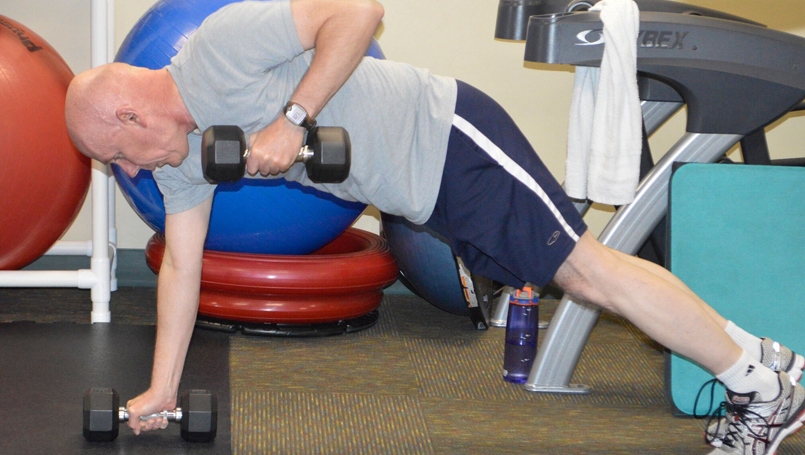Monday, November 21, 2016

An exercise stress test could reveal you have a life-threatening condition of which you are currently unaware.
So, who’s a candidate for an exercise stress test and what information can they learn from the results?
According to Barry Franklin, PhD. director of the Cardiac Rehabilitation program at Beaumont Hospital, Royal Oak, people who do not have cardiac risk factors and are asymptomatic, are not good candidates for an exercise stress test.
“Exercise stress tests are best for those who have multiple risk factors and/or symptoms suggestive of underlying heart disease,” Franklin said.
These may include exertional chest pain or discomfort, unusual shortness of breath and heart palpitations.
Franklin is the author of a recent article on the subject, “Should I have an exercise stress test?” which appeared in the Nov. 2 issue of the Journal of the American Medical Association, Cardiology.
Symptom-free older adults are not typically candidates for a cardiac stress test, while older adults with risk factors, including obesity, high blood pressure, high cholesterol and smokers should discuss recommended follow up with their doctor.
Exercise stress tests are best for those who have multiple risk factors and/or symptoms suggestive of underlying heart disease.
Dr. Franklin
In some cases, a coronary calcium score may be recommended for this type of patient instead.
For Gordon Spencer, a design engineer and frequent exerciser, an exercise stress test might have saved his life.
Life was moving along smoothly until a random physical at the age of 50 revealed a significantly elevated blood pressure, 180 over 120. Normal blood pressure is 120 over 80.
Spencer’s doctor recommended an exercise stress test.
“Until that point, I’d been swimming one to two miles, two to three times a week with friends for the previous 10 years and walking two and half miles at lunch a couple times a week,” Spencer said.
Spencer experienced severe chest pain or angina during the exercise stress test and was sent directly to the Emergency Center at Beaumont Hospital, Royal Oak. Once there staff transferred him to the cardiac catheterization lab.
Additional testing revealed that two of Spencer’s major coronary arteries were 75 percent blocked and he received a metal stent in each.
Afterwards, Spencer increased his attention on fitness, leading to an intense, competitive running regime. He also adopted a plant-based diet. Now eight years later, he continues to attend Beaumont cardiac rehabilitation three times a week, including a program for advanced athletes.
According to Franklin, Spencer was the ideal candidate for an exercise stress test.
Exercise stress tests are considered to be a safe procedure, with less than four serious complications per every thousand tests, Franklin stressed.
“It’s important you go to a lab with a verified track record for safely administering the test,” Franklin said. “Safety depends on the experience of those conducting the test and a lab that has a physician readily available.”
What an exercise stress can and can’t tell you
An exercise stress test helps determine what next steps a patient should take, Franklin explained.
"No medical test is 100 percent accurate – including an exercise stress test,” Franklin said. “It’s also important to understand that a ‘normal’ stress test does not rule out the chance that a plaque will rupture later and block an artery, causing a heart attack.
“Stress testing can help detect arteries that are severely narrowed, 70 percent or greater, that’s what causes abnormal electrocardiographic signs or symptoms,” Franklin said. “That said, heart attacks often result from lesser blockages that rupture and form clots.
Who can benefit from an exercise stress test?
- those experiencing chest pain, shortness of breath and other symptoms of cardiac disease
- those suffering from diabetes
- hose with a family history of premature cardiac disease
